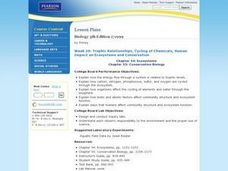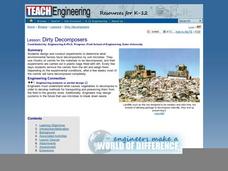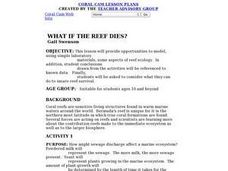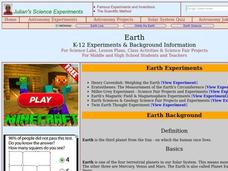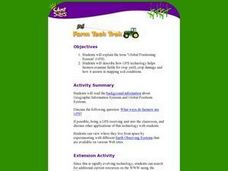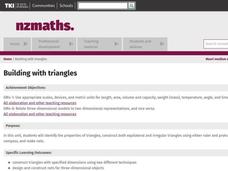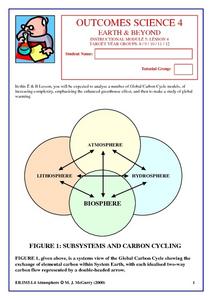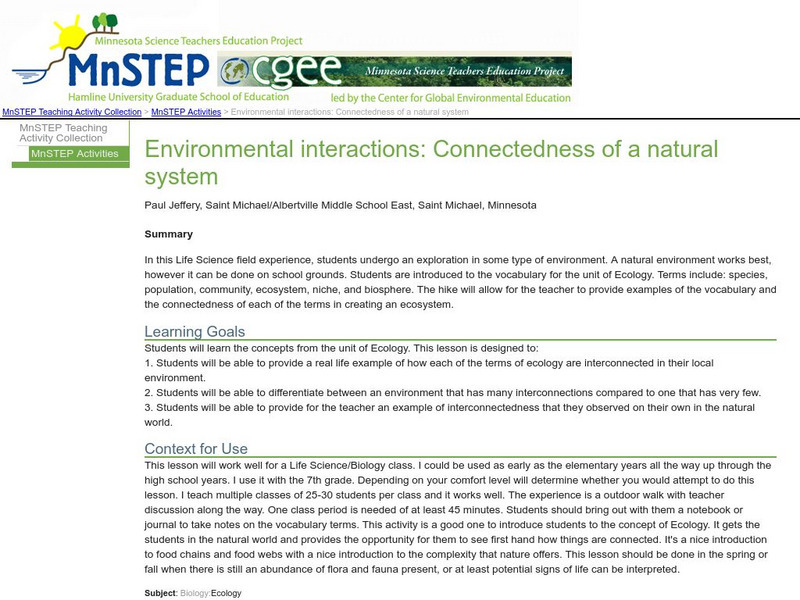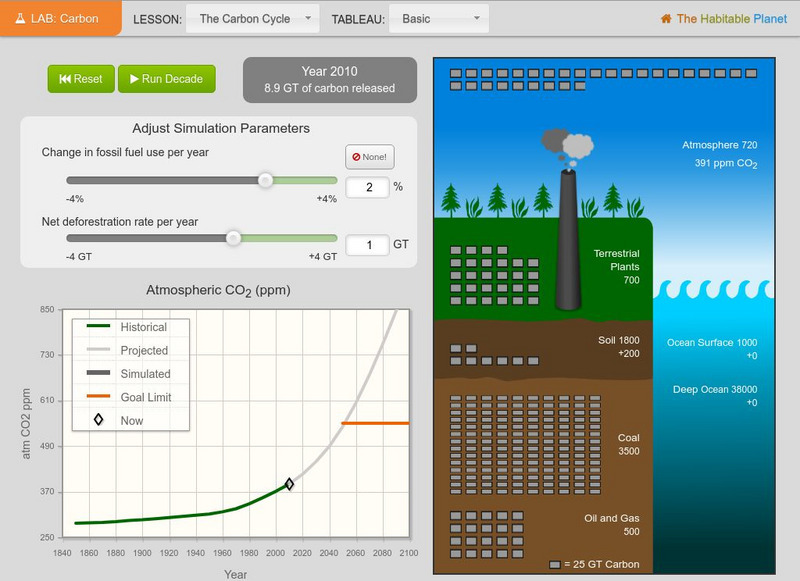Curated OER
Turning the Air Upside Down
Students analyze how engineers study temperature inversions and convection currents to understand why pollution levels may be higher in some areas than others. They participate in an experiment that allows them to build simple models to...
Curated OER
Graphing Ozone Chemistry: Introduction
Students discuss Ozone Chemistry. They do research on the subject. They graph their data. They analyze the economic impact of removing CFC's from the biosphere, and graph the worldwide production of CFC's since their discovery.
Curated OER
Trophic Relationships, Cycling of Chemicals, Human Impact on Ecosystems and Conservation
Students explore how the energy flow through a system is related to trophic levels. They investigate how organisms affect the cycling of elements and water through the biosphere. Students participate in lab activities to observe ways...
Curated OER
Dirty Decomposers
Seventh graders design and conduct experiments to determine what environmental factors favor decomposition by soil microbes. They use chunks of carrot for the materials to be decomposed, and their experiments are carried out in plastic...
Curated OER
Farming in a Fishbowl: How Ethnic Groups in
Seventh graders research Chinese agricultural needs and practices. They conduct an experiment with aquaculture and germinated rice as they take measurements and apply the scientific method.
Curated OER
What If the Reef Dies?
Students complete four activities to investigate how reef ecology can change. They perform experiments to show how sewage discharge can affect a marine ecosystem, look at substances that don't dissolve in water, examine wave action...
Curated OER
GPS Treasure Hunt for Knowledge
Students examine themselves as being part of a global community. In this global community activity, students investigate GPS systems. Students gain knowledge on how the device works. Students discover that satellites provide information...
Curated OER
Rain Forests
Students investigate claims of medicinal plants found in the rain forest. In this research skills instructional activity, students examine the validity of Internet sources as they visit websites in search of information about rain forest...
Curated OER
The Important Role of Biomes
Travel the world from the comfort of your classroom with this unit on the Earth's biomes.
Curated OER
Earth
Students study the earth in relation to the solar system. In this planetary instructional activity students complete several investigations into the measurement of the earth and its magnetic field.
Curated OER
Ecology and the Conservation of Natural Resources Lesson 2
Students compare and contrast abiotic and biotic factors. They discuss how these factors effect ecosystems. They answer questions to complete the lesson.
Curated OER
Building With Triangles
Fourth graders use two different techniques to construct triangles with specific dimensions. They determine how to construct nets for three-dimensional objects focusing on those made with equilateral triangles. They are able to name the...
Curated OER
Outcomes Science 4: Earth & Beyond
In this earth and beyond science worksheet, young scholars read through an 18 page packet containing information and questions pertaining to global carbon cycles. There are website links available on the pages where additional...
Curated OER
Bryant Creek Watershed Project - Making a Karst Dictionary
Students explore the definitions relevant to Karst topography. They develop a Bryant Watershed Dictionary of the special words and terms that are used to talk about the topography and hydrology of the area they live in.
Science Education Resource Center at Carleton College
Serc: Lab 1: Think Globally: Act Locally
A lab experiment in a series of experiments that explores Earth Science Systems. This lab introduces students to the parts of the Earth system: the atmosphere, hydrosphere, biosphere, and pedosphere. As the students learn about the...
Science Education Resource Center at Carleton College
Serc: Environmental Interactions: Connectedness of a Natural System
A field experience where students undergo an exploration in a natural environment. They are introduced to the concepts of species, population, community, ecosystem, niche, and biosphere.
Annenberg Foundation
Annenberg Learner: The Carbon Cycle
This lab uses a robust model of the carbon cycle to give students an intuitive sense for how carbon circulates through the atmosphere, biosphere, oceans, and crust. It allows them to experiment with how human input to the cycle might...
Alabama Learning Exchange
Alex: It's a Small, Small World
As an introduction to the study of diversity of life, science students will use hands-on inquiry experiments to discover the microscopic world through a microscope. Students will use computers to create a brochure or slideshow...


